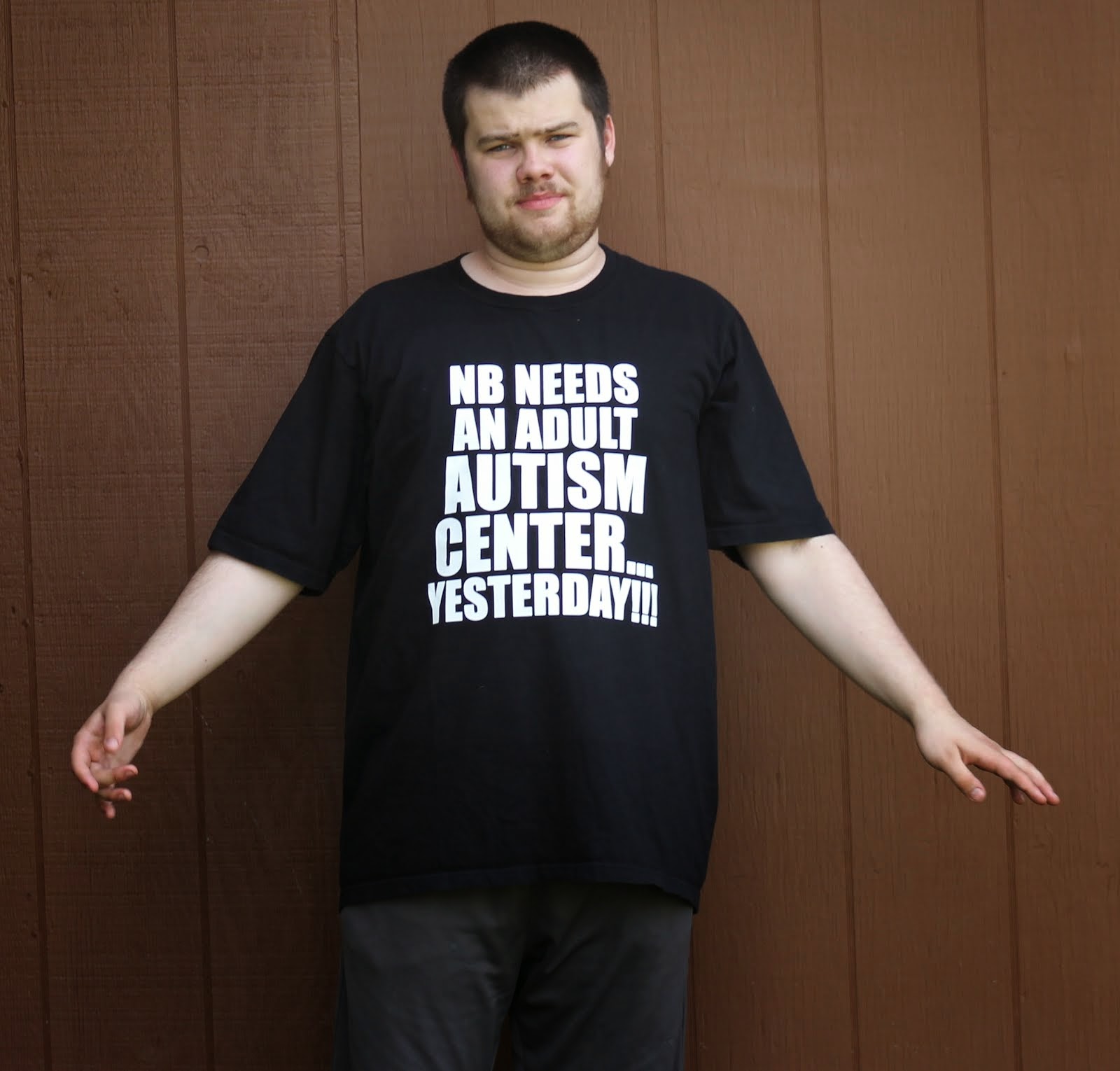Co-occurrence Of ADHD, Autism, And Intellectual Disability: Findings From A Recent Study

Table of Contents
Prevalence of Co-occurring Conditions
The co-occurrence of ADHD, ASD, and ID is far more common than previously thought. Having one of these conditions significantly increases the likelihood of having one or both of the others. This highlights the need for a comprehensive approach to diagnosis and intervention.
Increased Risk
A statistically significant elevation in the probability of one condition given the presence of another is consistently observed. This means that a child diagnosed with ADHD has a much higher chance of also being diagnosed with ASD or ID compared to the general population.
- Statistics: A recent study revealed that approximately X% of children diagnosed with ADHD also met the criteria for ASD, and Y% also had an ID. (Note: Replace X and Y with data from the actual study). These figures represent a significant increase compared to previous estimates.
- Comparison to Previous Studies: While prevalence rates have varied slightly across studies, the overall trend indicates a consistent and substantial co-occurrence of these conditions. This consistency suggests underlying shared etiological factors.
- Contributing Factors: The increased risk of co-occurrence is likely due to a complex interplay of factors, including shared genetic vulnerabilities, epigenetic modifications, and environmental influences during prenatal and postnatal development. Research is ongoing to pinpoint the exact mechanisms.
Phenotypic Overlap and Diagnostic Challenges
The co-occurrence of ADHD, autism, and intellectual disability presents significant diagnostic challenges due to the overlap in symptoms. This overlap can make it difficult to distinguish between the individual conditions and accurately assess their relative contributions to a child's overall presentation.
Similar Symptoms
Many symptoms are shared among ADHD, ASD, and ID, making differential diagnosis complex. For example, difficulties with attention, social communication, and adaptive behavior can be present across all three conditions.
- Overlapping Symptoms: Inattention, impulsivity, hyperactivity (ADHD); difficulties with social reciprocity, communication deficits, repetitive behaviors (ASD); cognitive limitations impacting learning and adaptive skills (ID) – all may present similarly in different combinations.
- Comprehensive Assessments: Accurate diagnosis requires comprehensive assessments conducted by experienced professionals. This includes detailed behavioral observations, standardized testing (e.g., IQ tests, diagnostic interviews), and input from parents and educators.
- Multidisciplinary Approach: The complexity of the co-occurring conditions necessitates a multidisciplinary approach involving psychiatrists, psychologists, developmental pediatricians, speech-language pathologists, and other specialists to provide a holistic evaluation and treatment plan.
Impact on Functional Outcomes
The combined presence of ADHD, ASD, and ID significantly impacts various aspects of a child's life, posing substantial challenges across multiple domains.
Challenges in Daily Life
The co-occurrence of these conditions often results in a more severe and multifaceted presentation, leading to more pronounced difficulties compared to children with a single diagnosis.
- Educational Challenges: Learning difficulties, behavioral problems in the classroom, and challenges with academic performance are common. This necessitates specialized educational interventions and supports.
- Social Challenges: Difficulties with social interactions and forming and maintaining relationships are frequently observed. This can lead to social isolation and decreased quality of life.
- Adaptive Skills: Challenges with daily living skills, such as self-care, household chores, and independent living, can significantly impact long-term independence.
- Mental Health: Children with co-occurring ADHD, ASD, and ID are at an increased risk for developing anxiety, depression, and other mental health issues.
Implications for Intervention and Support
Effective management of co-occurring ADHD, ASD, and ID requires tailored interventions that address the specific needs of each individual child.
Tailored Interventions
There is no "one-size-fits-all" approach. Interventions must be individualized and adapted to the unique profile of each child.
- Effective Interventions: Behavioral therapies (e.g., Applied Behavior Analysis, parent training), educational supports (e.g., individualized education programs, specialized tutoring), and, in some cases, medication may be necessary components of an effective treatment plan.
- Family Involvement: Active family involvement is crucial for the success of interventions. Families need support and training to implement strategies at home.
- Early Intervention: Early identification and intervention are vital for maximizing positive outcomes and improving long-term adaptive functioning.
- Ongoing Monitoring: Regular monitoring and adjustments to the intervention plan are essential as the child develops and their needs change.
Conclusion
The co-occurrence of ADHD, autism, and intellectual disability presents complex challenges for diagnosis and intervention. This article highlights the high prevalence of these co-occurring conditions and their significant impact on functional outcomes. Understanding the phenotypic overlap and developing tailored interventions are crucial for improving the lives of children affected by this triple diagnosis. Further research is needed to refine diagnostic approaches and optimize intervention strategies for this vulnerable population. To learn more about effective strategies for managing the co-occurrence of ADHD, autism, and intellectual disability, consult with a specialist and explore evidence-based resources. Understanding the nuances of co-occurrence ADHD, autism, and intellectual disability is paramount for providing effective support.

Featured Posts
-
 Louisville Mail Delivery Delays A Union Leaders Assessment
Apr 29, 2025
Louisville Mail Delivery Delays A Union Leaders Assessment
Apr 29, 2025 -
 Southern Beirut Targeted In Israeli Airstrike Residents Urged To Evacuate
Apr 29, 2025
Southern Beirut Targeted In Israeli Airstrike Residents Urged To Evacuate
Apr 29, 2025 -
 Get Your Capital Summertime Ball 2025 Tickets Braintree And Witham
Apr 29, 2025
Get Your Capital Summertime Ball 2025 Tickets Braintree And Witham
Apr 29, 2025 -
 Arson In Germany Georgian Man Detained Wife The Victim
Apr 29, 2025
Arson In Germany Georgian Man Detained Wife The Victim
Apr 29, 2025 -
 Wildfire Betting Exploring The Ethics And Legality Of Wagering On The Los Angeles Fires
Apr 29, 2025
Wildfire Betting Exploring The Ethics And Legality Of Wagering On The Los Angeles Fires
Apr 29, 2025
Latest Posts
-
 Top Summer Slides 2025 Reviews And Recommendations
Apr 30, 2025
Top Summer Slides 2025 Reviews And Recommendations
Apr 30, 2025 -
 The Best Slides For Summer 2025 A Comprehensive Guide
Apr 30, 2025
The Best Slides For Summer 2025 A Comprehensive Guide
Apr 30, 2025 -
 Legislators Voice Reservations About Gretnas Proposed Mega Project
Apr 30, 2025
Legislators Voice Reservations About Gretnas Proposed Mega Project
Apr 30, 2025 -
 Family Sues San Diego County Sheriffs Office For Negligence Resulting In Inmate Death
Apr 30, 2025
Family Sues San Diego County Sheriffs Office For Negligence Resulting In Inmate Death
Apr 30, 2025 -
 Motorcyclist Seriously Hurt In Crash With Large Goods Vehicle
Apr 30, 2025
Motorcyclist Seriously Hurt In Crash With Large Goods Vehicle
Apr 30, 2025
